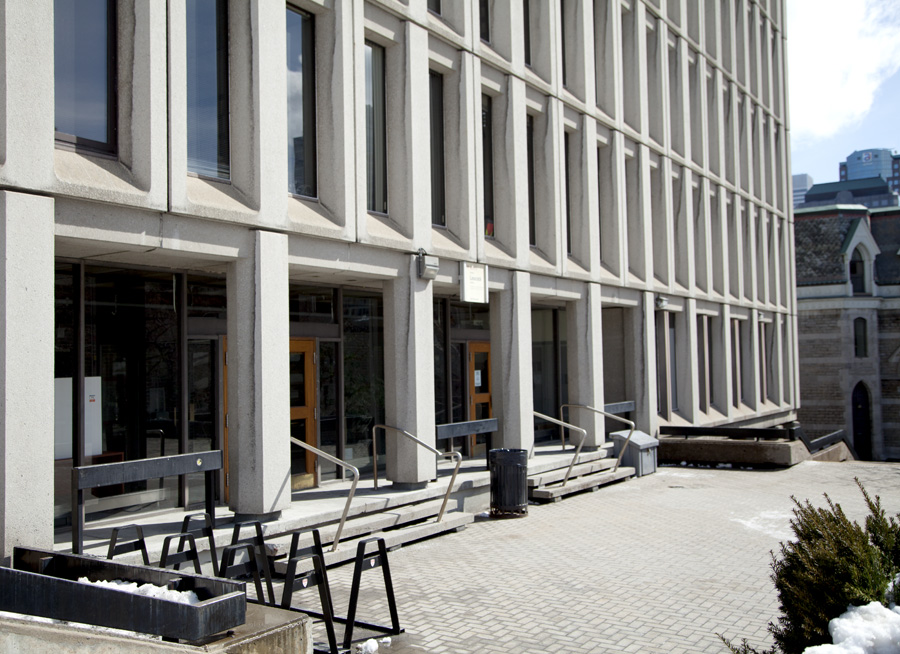On Jan. 10, the Arts Undergraduate Society (AUS) Legislative Council held its first meeting of the Winter semester. Council deliberated new ways to allocate the Arts Computer Lab Fund, and to incorporate funds from increased student fees into the Society’s Winter budget.
Council conducts straw poll on computer rentals
Following the Fall 2017 Referendum, the semesterly fee for the Arts Computer Lab Fund was reduced from $9.80 to $3.85 for full-time Arts students. Desktop computer usage in Arts facilities has steadily decreased over the years. However, demand for laptop lending has doubled or more every year since the program’s introduction. AUS President Erik Partridge suggested removing the computers from either the Ferrier Computer Lab, the Leacock lobby, or the AUS Student Lounge.
“Many have suggested that the Ferrier Computer Lab should be transformed into an open study space,” Partridge said. “The Leacock Lobby will retain two desktop computers, which could possibly become OPUS [card] loading stations.”
Partridge called for a straw poll, which resulted in a majority favouring the removal of computers from the Ferrier computer lab. A formal vote will be taken at a future Council meeting.
Departmental funding allocations discussed
In a second straw poll, Council voted on how to allocate revenue from the AUS base fee, a non-opt-outable fee for students in the Faculty of Arts used to fund departmental associations in the Faculty. An increase in the AUS semesterly base fee was ratified in the Fall 2017 referendum, resulting in a fee of $16.50 for full-time students and $8.25 for part-time students each semester, starting in Winter 2018.
With the fee increase, total funding allocated to each AUS department increased 10 per cent. In the straw poll, Council also voted in favour of a $3,500 baseline funding increase for every department.
Debate on how to spend budget surplus
According to Vice-President (VP) Finance Noah Lew, AUS revenue will increase by approximately $11,000 by the end of the fiscal year on Apr. 30, due to the base fee increase. Council discussed funding possible new projects, including the Journal Fund and a textbook lending program.
“There is currently a lot of money in the bank accounts,” Lew said. “If there is a need [to fund different programs], we can definitely run a deficit this year. It is actually financially feasible to do so.”
Patridge noted that it is also possible to substitute a budget deficit with the underused funds of the Financial Management Committee.
“The Committee allocates funds such as the Journal Fund to undergraduate student-run journals,” Patridge said. “But most of the time, the funds are only spent to around 50 per cent. Therefore, it is also possible to utilize these funds before running a budget deficit.”
VP Academic Madeline Wilson suggested using the surplus on a textbook lending program—which would provide textbook rental services for high-enrolment classes within the Faculty of Arts—to aid students who cannot afford the purchases.
“Ideally, we would like to buy enough [textbooks] to cover at least around 10 per cent of the enrolment [of each class],” Wilson said.
Motion to Amend the Allocation Decisions of the Arts Student Employment Fund Committee
The final item on the agenda was a motion to reduce the funds AUS allocates to the Arts Student Employment Fund (ASEF)—which supports extracurricular academic opportunities for students—from $16,850 to $13,850. Wilson put forward the motion, and noted that two Arts professors still have leftover money from other AUS funds granted to them in past years.
This motion carried. AUS Council will reconvene on Jan. 24.








